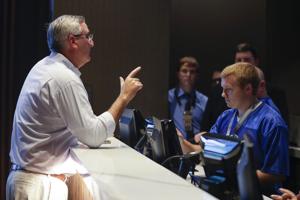Call is out to legalize video gaming terminals in Indiana

(The Center Square) – Indiana bars, taverns and nonprofits want a piece of the state’s gambling industry and the business that comes along with it.
More than 900 owners and operators of those businesses and organizations – including VFWs and American Legions – in the state have signed a petition asking the Indiana General Assembly to support legislation to allow video gaming terminals in their establishments, according to the Indiana Licensed Beverage Association.
The group is part of a statewide coalition asking for changes to state law in order to attract customers and generate new revenue at a time when many small businesses and nonprofit clubs continue to struggle during the ongoing COVID-19 pandemic.
Over the years, gaming has expanded in the Hoosier state, but the organizations and businesses have not been part of the expansion, according to Brad Klopfenstein, ILBA president.
“These Indiana-based small businesses are important parts of small towns and neighborhoods,” Klopfenstein said. “They have created jobs and paid taxes for decades, only to watch the multi-billion-dollar gaming industry explode in Indiana while they are left with the challenges of keeping their doors open. Without this fair and modest change in state law, many of them will be forced to close permanently.”
A website devoted to video gaming terminals in Indiana says legalization would create jobs, protect small businesses and generate more than $100 million in the first full year. VGTs for Indiana has support from the ILBA, along with the Indiana Amusement & Music Operators Association, Indiana Bowling Centers Association and the Petroleum Marketers and Convenience Stores Association.
The website also claims more than 32,000 jobs would be created if machines were legal.
“On top of the state gaming laws, COVID has been devastating for local businesses, and this change could save many of them at no cost to the state,” Klopfenstein said. “These establishments are what give our communities character, and they’re strong community partners. They’re the first to support local fundraisers, and the owners are your neighbors. We are not asking for a handout, but we are asking for the state’s permission.”

